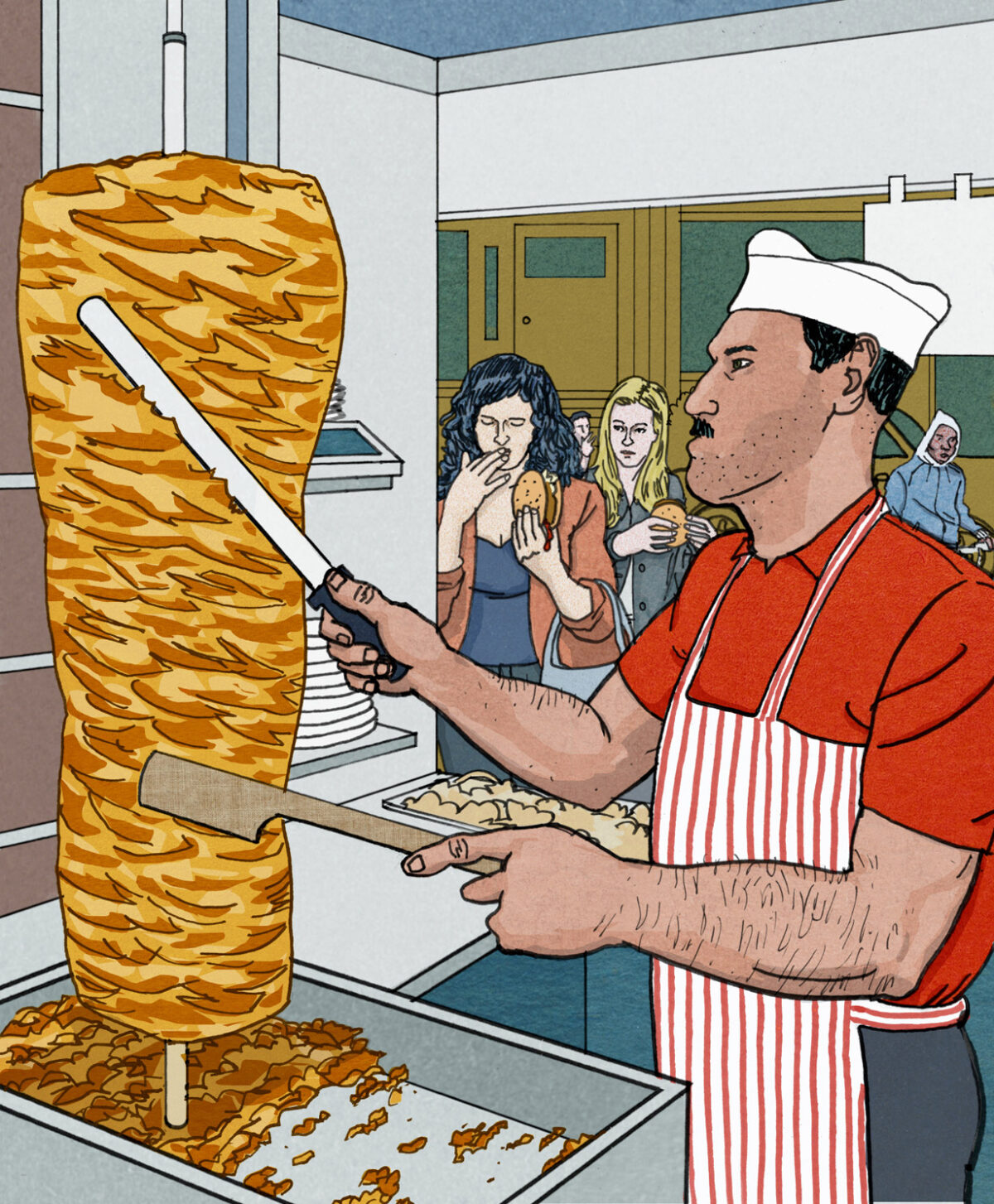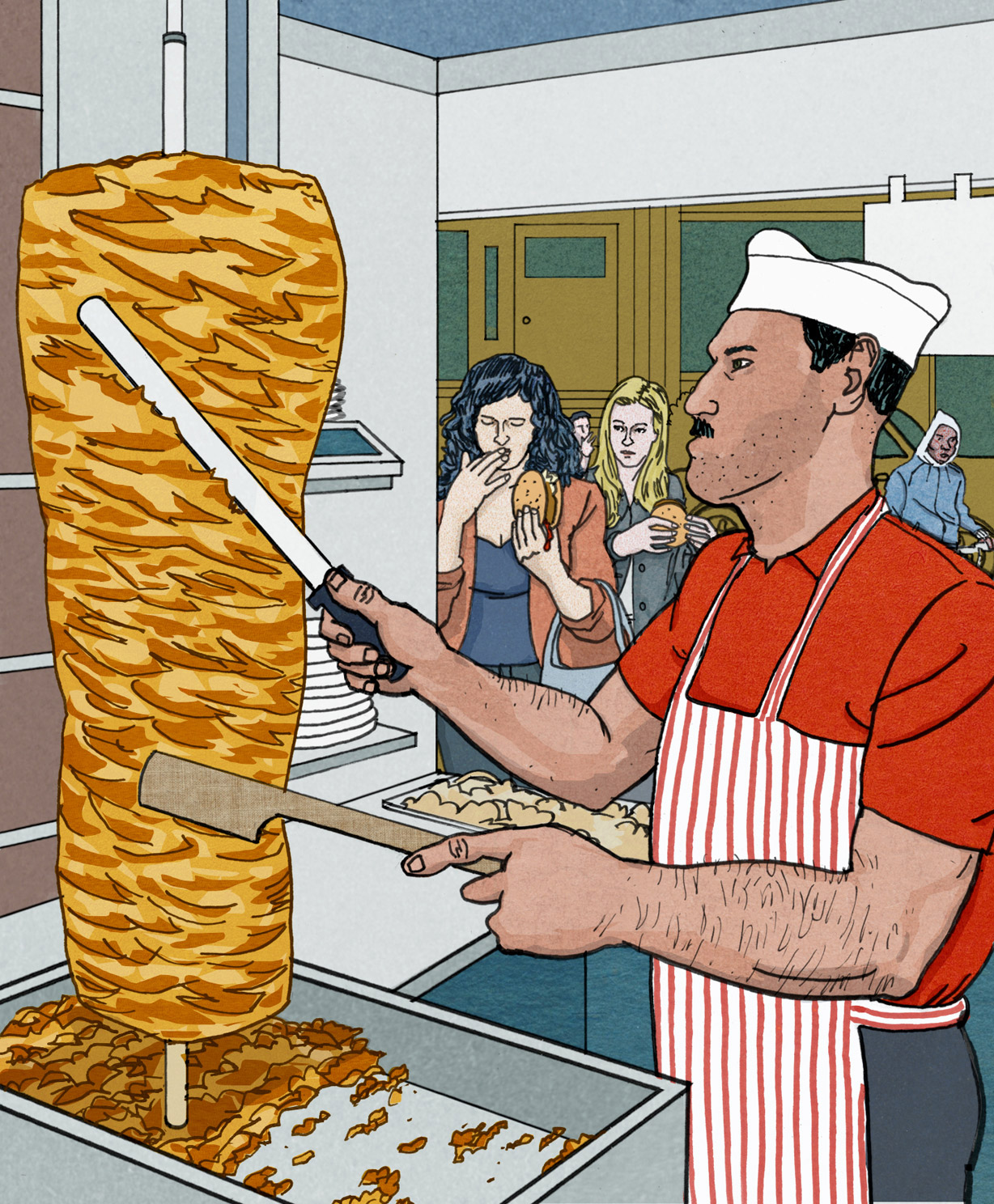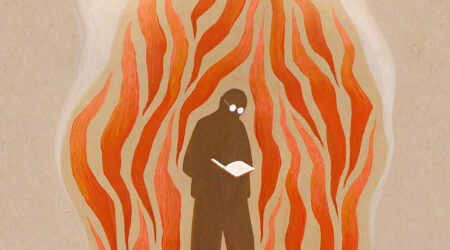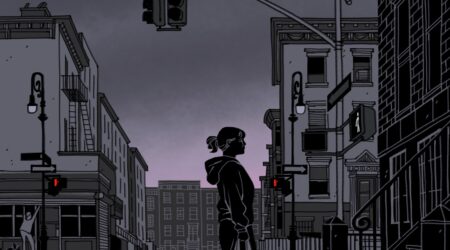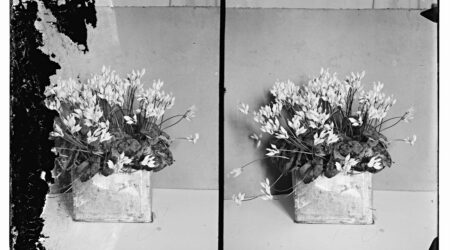“How many for this much, fam?”
The black boy means wings, chicken wings. He pulls change from his trousers and puts it on the counter, lifts his cap, scratches under it. Farid looks at the money. “Four,” he guesses.
“Nah, nah. Five.” The black boy holds his hand up, spreads his slender fingers.
Farid nods. He knows not to argue. There are more black boys outside, slack on low bicycles, looking bored. It is frightening how quickly boredom can turn to agitation in young people and Hassan has warned Farid about the gangs of black boys in the area. They have nothing better to do. That’s why they come in, two, three times a day. Just give them what they want. It’s not worth the damage. The wings are getting old now anyway. Dried out they have begun to resemble too closely what they really are: limbs, weak-boned and severed. Farid scoops six into a box and hands it to the black boy who leaves without saying thank you. Farid watches him and his friends pedal slowly into the dark.
Later will be more difficult. The nightclub around the corner closes soon, which means drunks. They will barge into the shop and shout orders over each other, pointing fingers at the menu overhead or at the trays behind the glass. Shishandchipsmate. Fuckingshishandchips. Farid will struggle to understand and he will make mistakes but tonight Hassan will not be there to help him. Hassan’s wife is having a baby. Right now she is pushing and he is in the hospital waiting room waiting for the child to slither out. Farid thinks about Hassan’s pretty wife on the bed with her legs open, covered in blood. He slices through a bag of frozen limbs with his switchblade.
Maybe tonight the women from the nightclub will flirt with him. They do this with Hassan sometimes, and he plays along. They juggle their breasts and say things like does he want a blowjob? and would he like a fuck? They never ask Farid these questions. He is usually in the back, loading bag after bag of frozens into the fryers, lifting up the baskets and shaking them because the customers think it speeds up cooking. The women can see him back there but they ignore him. He wonders if they can tell he has not been living in England as long as Hassan, who was never a refugee and no longer counts as an immigrant. It has been twenty years, cousin. Listen to how I speak: Lahndahn. They don’t think of me that way anymore.
Hassan is lucky.
“Lahndahn,” Farid says and it sounds wrong. His tongue is still in ash-Shahbaa, at Bustan Café joking with his elder brother, Riad. It doesn’t want to leave that place, just like Riad who would rather die there instead.
“But we are lucky, to have somewhere else to go. Somewhere safe,” Farid had reasoned, then pleaded.
“I don’t believe in lucky,” his brother had said.

